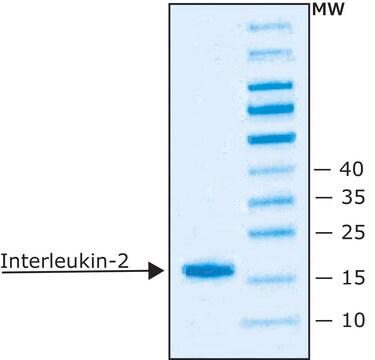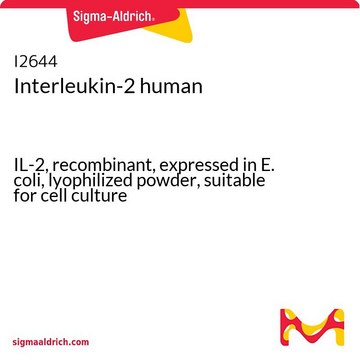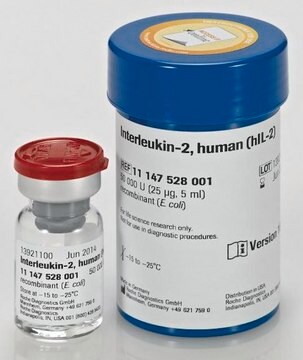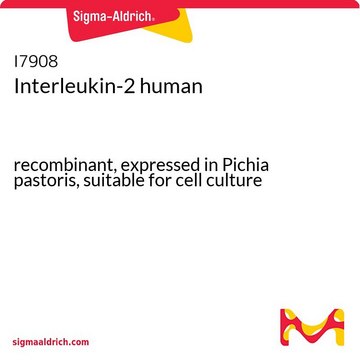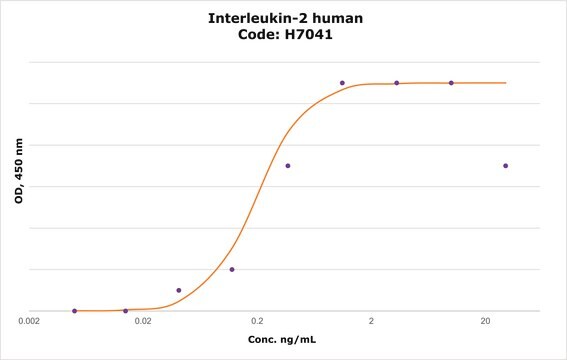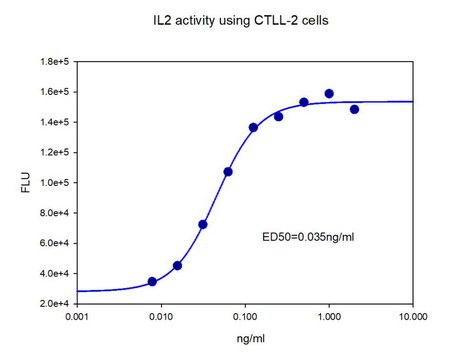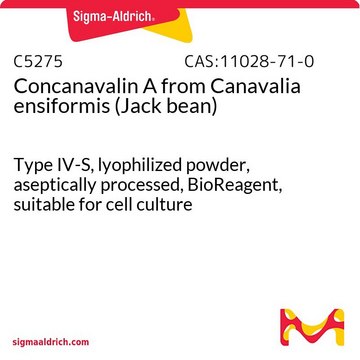I4161
IL-2 mouse
≥97% (SDS-PAGE), recombinant, expressed in E. coli, lyophilized powder, suitable for cell culture
Synonym(s):
mIL-2, IL-2, T-cell growth factor
About This Item
Recommended Products
product name
Interleukin-2 from mouse, IL-2, recombinant, expressed in E. coli, carrier free
biological source
mouse
Quality Level
recombinant
expressed in E. coli
Assay
≥97% (SDS-PAGE)
form
lyophilized powder
potency
≤0.2 ng/mL ED50
quality
endotoxin tested
mol wt
17.2 kDa
packaging
pkg of 5X20 μg
pkg of 20 μg
technique(s)
cell culture | mammalian: suitable
impurities
≤0.200ng/ml
color
white
UniProt accession no.
shipped in
dry ice
storage temp.
−20°C
Gene Information
mouse ... Il2(16183)
Looking for similar products? Visit Product Comparison Guide
Biochem/physiol Actions
Physical form
Reconstitution
Signal Word
Warning
Hazard Statements
Precautionary Statements
Hazard Classifications
Eye Irrit. 2 - STOT SE 3
Target Organs
Respiratory system
Storage Class Code
10 - Combustible liquids
WGK
WGK 3
Flash Point(F)
Not applicable
Flash Point(C)
Not applicable
Certificates of Analysis (COA)
Search for Certificates of Analysis (COA) by entering the products Lot/Batch Number. Lot and Batch Numbers can be found on a product’s label following the words ‘Lot’ or ‘Batch’.
Already Own This Product?
Find documentation for the products that you have recently purchased in the Document Library.
Customers Also Viewed
Our team of scientists has experience in all areas of research including Life Science, Material Science, Chemical Synthesis, Chromatography, Analytical and many others.
Contact Technical Service